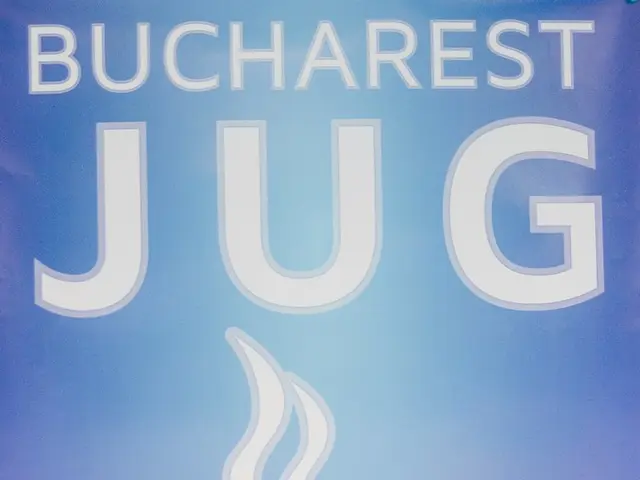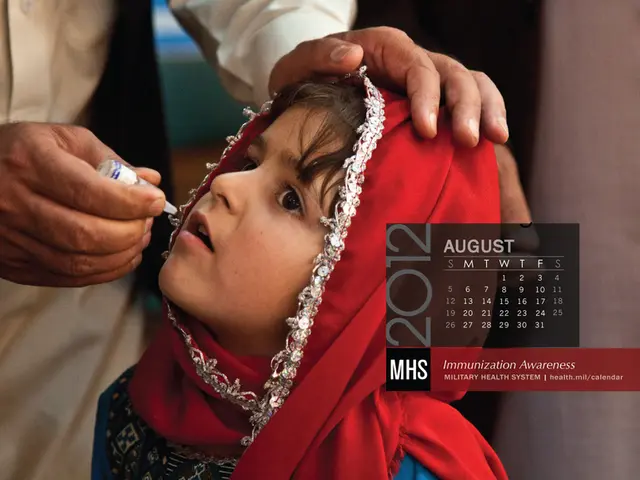Toronto's Babe Nation women manage captivating, buzzworthy production of "Bonjour Tristesse"
Rewritten Article
Taking nine long years to see the light of day, the indie film "Bonjour Tristesse," directed by Durga Chew-Bose and produced by Katie Bird Nolan and Lindsay Tapscott's production company, Babe Nation, has finally hit the big screens on May 2. And just like the resilient, female-driven production house, the film's journey echoes a similar persistence that ultimately paid off.
Originally adapted from the beloved 1954French novel by Françoise Sagan, "Bonjour Tristesse" boasts a stellar cast comprising Chloe Sevigny, Claes Bang, and Lily McInerny. The film revolves around 17-year-old protagonist Cécile, tracing her tumultuous exploration of womanhood, sensuality, and freedom over one transformative summer. As various pivotal characters cluster under the same roof, the narrative paints a vivid portrait of an adolescent's coming-of-age struggle. After its debut at TIFF (Toronto International Film Festival), the film continued making waves at Palm Springs and Goteborg, creating a buzz as it treaded along festivals.
The story of Babe Nation begins with a fortuitous encounter reminiscent of a Hollywood movie. . Katie and Lindsay shared an instinctive bond–they realized they shared more than a passion for theatre; they yearned to be backstage, nurturing talent and watching others shine. "We knew that we wanted to work with Calvet (first-time women writers and directors) because, gut instinct," says Bird Nolan. Their unwavering confidence in relatively inexperienced talent set them apart in the competitive production landscape.
Focusing primarily on helping emerging directors and writers, Babe Nation embodies passion and a deep-rooted commitment to amplifying voices that can otherwise go unheard. They took significant gambles on relatively untested talents such as Aisling Chin-Yee (director of "The Rest of Us"), Mary Nighy ("Alice, Darling"), and Chew-Bose. As the company dared to dream, it managed to captivate the attention of notable artists like Heather Graham, Anna Kendrick, and Chloe Sevigny, emerging as a powerhouse platform for women-led narratives.
Interestingly, Babe Nation's dogged determination and intuitive approach led them to secure the rights for "Bonjour Tristesse" after several initial rejections. Recognizing the potential in Chew-Bose's visually impactful prose, they wasted no time in approaching the book's publisher, Éditions Julliard (initially turning them down). But undeterred, they continued advocating for the project by showcasing their own personal experiences and insights into relationship dynamics with their fathers, eventually securing a meeting with Delphine de la Panneterie.
Embracing new possibilities and daring to dream bigger, Babe Nation never shied away from hard work or setbacks. "If this is what you want to do, you're going to get way more nos than yeses, so you have to learn how to make the nos feel like a win somehow," remarks Bird Nolan. By staying true to their vision and holding onto the hope that one "no" could open doors to new opportunities, they successfully navigated their way through the industry juggernaut.
Chew-Bose shares a similar sentiment, acknowledging that working with Babe Nation provided her with an unequivocal support system that fostered growth and pushed boundaries. "Their orbit [of support] was truly healing," she admits. It's clear that Babe Nation's collaborative ethos and steadfast refusal to take "no" for an answer are central to their success.
In essence, "Bonjour Tristesse" represents more than just another film; it showcases the incredible journey and grit of Babe Nation, their unwavering commitment to nurturing female talent, and the powerful bond that Katie Bird Nolan and Lindsay Tapscott have shared since their kitchen table days. The production house continues to forge ahead, determined to create more thoughtfully crafted stories that will resonate with women worldwide.
- The indie film "Bonjour Tristesse," which delves into themes of womanhood, sensuality, and freedom, is set to release news on May 2, produced by Babe Nation, a production company known for their persistence and support of women-led narratives.
- The film, based on the 1954 French novel by Françoise Sagan, stars celebrated actresses like Chloë Sevigny, Lily McInerny, and features performer Claes Bang.
- Set in a transformative summer, the story revolves around the protagonist Cécile as various characters gather under one roof, depicting an adolescent's struggle towards self-discovery.
- TIFF, Palm Springs, and Goteborg festivals have celebrated the film, creating a buzz as it ascends the entertainment world.
- The envisioning of Babe Nation began with a serendipitous encounter, Katie and Lindsay joining forces to produce and nurture talent, particularly budding women directors and writers.
- Babe Nation has taken risks on untested talents such as Aisling Chin-Yee, Mary Nighy, and Durga Chew-Bose, becoming a powerhouse for women-led productions.
- Babe Nation's tenacity and intuitive approach helped them secure the rights to "Bonjour Tristesse," even after initial rejections, and eventually gaining recognition from Delphine de la Panneterie.
- As Babe Nation looks towards the future, they plan to continue creating thoughtful stories that resonate with women globally, staying true to their founding principles of nurturing female talent and pushing boundaries in the entertainment industry.








